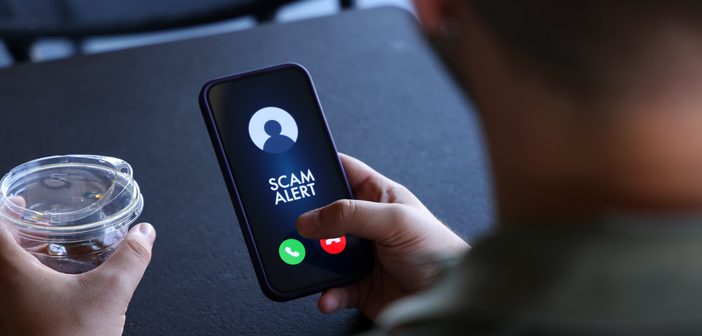“Hello, we’ve noted a problem with your account ending in 4321. Can you please give me your Social Security Number so I can verify your identity?”
Talk about service, you may think. Your financial institution is calling you to report suspicious activity related to your account. Here’s the problem: There’s been no suspicious activity. The person is not calling from your financial institution. It’s a scam.
But wait, it can’t be; the phone number on your Caller ID is the number of your financial institution. Yes, it is the same number. However, it’s a spoof. Fraudsters use technology to mask or spoof their phone number and put your financial institution’s phone number on your Caller ID screen.
Hold on a second, they have the last four numbers of my account or Social Security Number, it must be real. Sadly, the internet is swimming with personal information stolen from businesses of all sizes. A recent data breach of a large telecom resulted in the posting of personal information of more than 70 million current and former customers on the dark web.
Determining whether an incoming call is authentic or a spoof can be challenging. When in doubt, assume it’s a fraudster trying to get your personal information or access your money. Scammers aren’t just imitating financial institutions in an attempt to harm; they’re also using official-sounding names to make it seem like they’re calling from a legitimate government agency.
Here are some helpful ideas from the Federal Communications Commission (FCC) to help you not be fooled by a phone scam.
- Don’t answer calls from unknown numbers. If you answer such a call, hang up immediately.
- A local number does not necessarily mean it is a local caller.
- If you answer the phone and the caller – or a recording – asks you to hit a button to stop getting the calls, hang up. Scammers often use this trick to identify potential targets.
- Do not respond to any questions, especially those that can be answered with “Yes” or “No.”
- Never give out personal information such as account numbers, Social Security Numbers, mother’s maiden name, passwords, or other identifying information in response to unexpected calls or if you are at all suspicious. If you have doubts, hang up.
- If you get an inquiry from someone who says they represent a company or a government agency, hang up and call the phone number on your account statement, in the phone book, or on the company’s or government agency’s website to verify the authenticity of the request. You will usually get a written statement in the mail before you get a phone call from a legitimate source, particularly if the caller asks for a payment.
- Use caution if you are being pressured for information immediately.
- If you have a voicemail account with your phone service, set a password. Some voicemail services are preset to allow access if you call in from your phone number. A hacker could spoof your home phone number and gain access to your voicemail if you do not set a password.
- Talk to your phone company about call-blocking tools and check into apps you can download to your mobile device. The FCC allows phone companies to block robocalls by default based on reasonable analytics. More information about robocall blocking is available at fcc.gov/robocalls.
What to do if you feel you’re being or have been scammed.
Stop. Take a breath. Now, take action. Hang up the phone. Do not respond to random texts. Call your financial institution or credit card company using the phone number on your statement or the back of your credit card to alert them you suspect you’ve been a victim of fraud.
Report the incident to the FTC. Your report is shared with more than 2,800 law enforcers. You can also file a complaint or report with the FBI.
To help limit illegal and unwanted calls, contact your phone provider. Here are additional call-blocking tools and resources from the Federal Communications Commission.
If you receive a suspicious call, hang up, and please call the U.S. Senate Special Committee on Aging’s Fraud Hotline at 1-855-303-9470.
Final thoughts.
Unfortunately, protecting yourself from scammers and fraudsters is getting more difficult as their techniques become more sophisticated. You must remain vigilant and cautious of anyone or any offer related to your finances and personal information. Here are a few resources filled with information to help protect you.
- Visit our Security Center for tips and information to help you keep your guard up.
- The U.S. Senate Special Committee on Aging has created a detailed report on fraud targeting older individuals. It covers the scams we’ve outlined in greater detail and includes information to help you protect yourself.
Remember, we will never text or call you asking for your private information, such as your Social Security Number, account or credit card number, username, password, one-time passcode, etc., over the phone unless you initiated the call directly to us.
If you receive a text or call from someone claiming to be a Credit Union employee asking for your account information (such as your online banking username, password, one-time passcode, credit card number, account number, etc.), do not give it to them. Even if the caller has an identifying piece of information about you or the call appears to be from our 800 number. This call is NOT legitimate. As mentioned above, scammers can spoof phone numbers to make it appear that the call is from a trusted source. The Credit Union will not call you and ask for this information. Hang up and contact us directly at 800.877.2345. Be safe. Be vigilant. Be aware.





